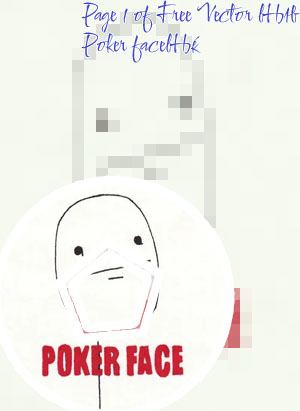When it comes to playing poker for real money, having a good poker face is crucial. A strong poker face can help you bluff your opponents and hide your emotions, giving you an edge at the table. To improve your poker face and increase your chances of winning real money, check out these four articles:
Mastering the Art of the Poker Face: Tips and Tricks for Keeping a Straight Face

Maintaining a poker face is a critical skill in the world of poker, where players strive to keep their emotions hidden to avoid giving away their hand. "Mastering the Art of the Poker Face: Tips and Tricks for Keeping a Straight Face" is an invaluable resource for anyone looking to improve their poker face and gain an edge at the table.
The book provides expert insights and practical advice on how to control your facial expressions, body language, and emotions while playing poker. Here are some key takeaways from the book:
-
Practice in front of a mirror: One of the best ways to improve your poker face is to practice in front of a mirror. This will help you become more aware of your facial expressions and make it easier to control them during a game.
-
Focus on your breathing: Deep breathing can help you stay calm and focused during intense poker games. By focusing on your breath, you can better control your emotions and maintain a neutral expression.
-
Use sunglasses or a hat: Wearing sunglasses or a hat can help conceal your eyes and prevent other players from reading your emotions. This can give you a strategic advantage at the table.
-
Stay consistent: Consistency is key when it comes to maintaining a poker face. Make sure to keep your expressions
The Psychology Behind a Poker Face: How Emotions Impact Your Game
Poker is not just a game of skill and strategy; it also involves a deep understanding of human psychology. The ability to maintain a poker face is crucial in this game, as it can help players conceal their emotions and intentions from their opponents. But what exactly is the psychology behind a poker face, and how do emotions impact your game?
Emotions play a significant role in poker, affecting players' decision-making processes and overall performance. When players experience emotions such as fear, excitement, or frustration, it can cloud their judgment and lead to poor decision-making at the table. For example, a player who is feeling anxious may be more likely to play cautiously and fold early, while a player who is feeling overconfident may take unnecessary risks and lose big.
On the other hand, mastering the art of maintaining a poker face can give players a competitive edge. By keeping their emotions in check and appearing calm and collected, players can bluff effectively and deceive their opponents. This ability to control one's emotions and project a neutral demeanor is a key skill in poker, allowing players to manipulate their opponents and gain an advantage at the table.
In conclusion, the psychology behind a poker face is a fascinating aspect of the game that can greatly impact players' performance. By understanding how emotions influence their
Strategies for Maintaining a Poker Face in High-Stress Situations
Maintaining a calm and composed demeanor in high-stress situations is crucial, especially in activities like poker where bluffing and deception play a significant role. Here are some expert tips to help you keep a poker face when the pressure is on:
-
Control your breathing: Deep, slow breaths can help regulate your heart rate and keep you calm under pressure. Practice breathing exercises to stay relaxed and focused during intense moments.
-
Maintain good posture: Sitting up straight with your shoulders back not only exudes confidence but also helps you feel more in control of the situation. Avoid fidgeting or slouching, as these can give away your emotions.
-
Use sunglasses or a hat: Wearing accessories like sunglasses or a hat can help shield your eyes and prevent others from reading your expressions. This physical barrier can give you an added layer of protection when trying to maintain a neutral facade.
-
Practice mindfulness: Stay present in the moment and focus on the task at hand. Avoid letting your mind wander to worries or distractions, as this can affect your ability to stay composed.
-
Study your opponents: Pay attention to the behavior and patterns of those around you. By understanding how they react in stressful situations, you can better anticipate their moves and adjust your own strategy accordingly
The Importance of a Poker Face in Real Money Games: How to Stay Cool Under Pressure
In the high-stakes world of real money poker games, maintaining a poker face is crucial for success. This skill is not just about hiding emotions, but also about staying cool under pressure and making strategic decisions without giving away any tells to your opponents. The ability to keep a neutral expression can be the difference between winning big or losing it all in a single hand.
Having a poker face is essential because it prevents your opponents from reading your emotions and predicting your next move. By remaining stoic and unreadable, you can bluff effectively and keep your opponents guessing. This is especially important in real money games where the stakes are high and every decision counts.
To develop a strong poker face, practice is key. Start by playing in low-pressure environments and focus on controlling your facial expressions and body language. Pay attention to your opponents' behavior and learn to spot their tells while avoiding giving away any of your own.
In conclusion, mastering the art of maintaining a poker face is essential for success in real money poker games. By staying cool under pressure and keeping your emotions in check, you can increase your chances of winning and outwitting your opponents. Practice regularly and pay attention to your opponents' behavior to improve your skills and become a formidable player at the poker table.
